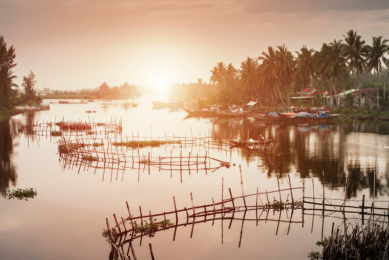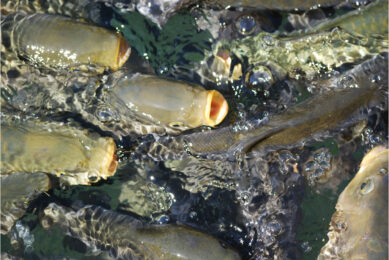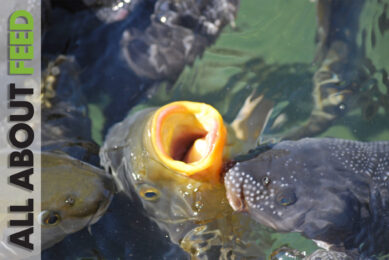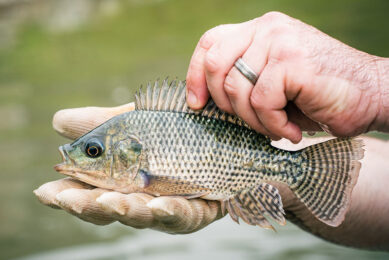Encouraging new trials with fish attractants
After initial laboratory tests, the first commercial trials in the use of pheromone-based fish feeding attractants have shown very encouraging results.
The trials were carried out under the supervision of UK Government Agency CEFAS (the Centre for
Environment, Fisheries & Aquaculture Science), in partnership with Kiotech International and in collaboration
with local aquaculture and fish institutes in China and
Thailand.
Tilapia trials
The trials on Tilapia (Oreochromis
niloticus) were conducted in Zhouhai, China over a six month period. The
application of the Tilapia Aquatice product produced a 17% increase in the
average weight of the Tilapia compared to the control pond. Aquatice also
increased the growth rate of the Tilapia allowing the farmer to start harvesting
three weeks earlier than the control pond. In addition, it was noted that in the
Aquatice treated pond the fish appeared healthier, the water quality was better
and the secondary crop of White Shrimp was significantly higher with less
incidence of disease. Overall, the farmer received a 50% higher income from the
Aquatice treated pond than the control.
White shrimp trials
In
White Shrimp (Litopenaeus vannamei), the trial was conducted in Tradt,
south east Thailand over a three month period. The White Shrimp Aquatice product
was applied coated to the commercial shrimp feed. The application of feed coated
with Aquatice produced Shrimp which were 30% larger on average than the control
Shrimp and had a significantly faster growth. In addition, less feed was
required in the Aquatice pond probably due to increased feeding by the Shrimp,
which was reflected in an improved Food Conversion Rate (FCR) at harvest than
the control pond.
Reduction in waste
On the environmental side,
the use of pheromone based attractants will lead to a reduction in the amount of
waste from uneaten feed and in the longer term it is anticipated that the
pheromone-based technology will be used to permit the use of more sustainable
forms of proteins within feeds, which are not based on fish oils or proteins.
This approach will further conserve and protect wild fish populations and
provide a sustainable base for the large-scale expansion of the aquaculture
sector.
These findings, which will be outlined at the upcoming Aquafeed Horizons Conference in
Utrecht, the Netherlands, by CEFAS head of salmon and freshwater fisheries Dr.
Andrew Moore.
Related websites:
CEFAS
Kiotech
To receive free feed news, subscribe
here.











